Vietnam’s Expanding Tourism Landscape
As Vietnam’s domestic tourism market matures, travelers are increasingly looking beyond the familiar beach and city destinations.
Cultural, spiritual, and wellness-oriented retreats are rising in popularity—places that allow people to disconnect from the chaos of daily life and reconnect with something deeper.
Yen Tu, long regarded as the “cradle of Vietnamese Buddhism,” is one of those places. Nestled in the mountains of Quang Ninh Province, it’s where King Tran Nhan Tong renounced his throne in the 13th century to found the Truc Lam Zen Buddhist sect. For centuries, pilgrims have climbed its stone paths to reach the Bronze Pagoda at the summit. Today, with improved infrastructure and carefully planned development, Yen Tu is evolving into a destination that blends spiritual heritage with modern hospitality.
At the heart of this evolution is the MGallery Legacy Yen Tu, a hotel that bridges Vietnam’s history with contemporary comfort.
A Design Rooted in Legacy
The Legacy Yen Tu was designed by Bill Bensley, one of the most distinctive voices in global hospitality architecture. Famous for bold, often whimsical designs, Bensley approached Yen Tu with rare restraint. Before drafting a single line, he spent an entire month living in the area—walking the pilgrimage trails, visiting pagodas, and immersing himself in the spiritual rhythm of the mountain.
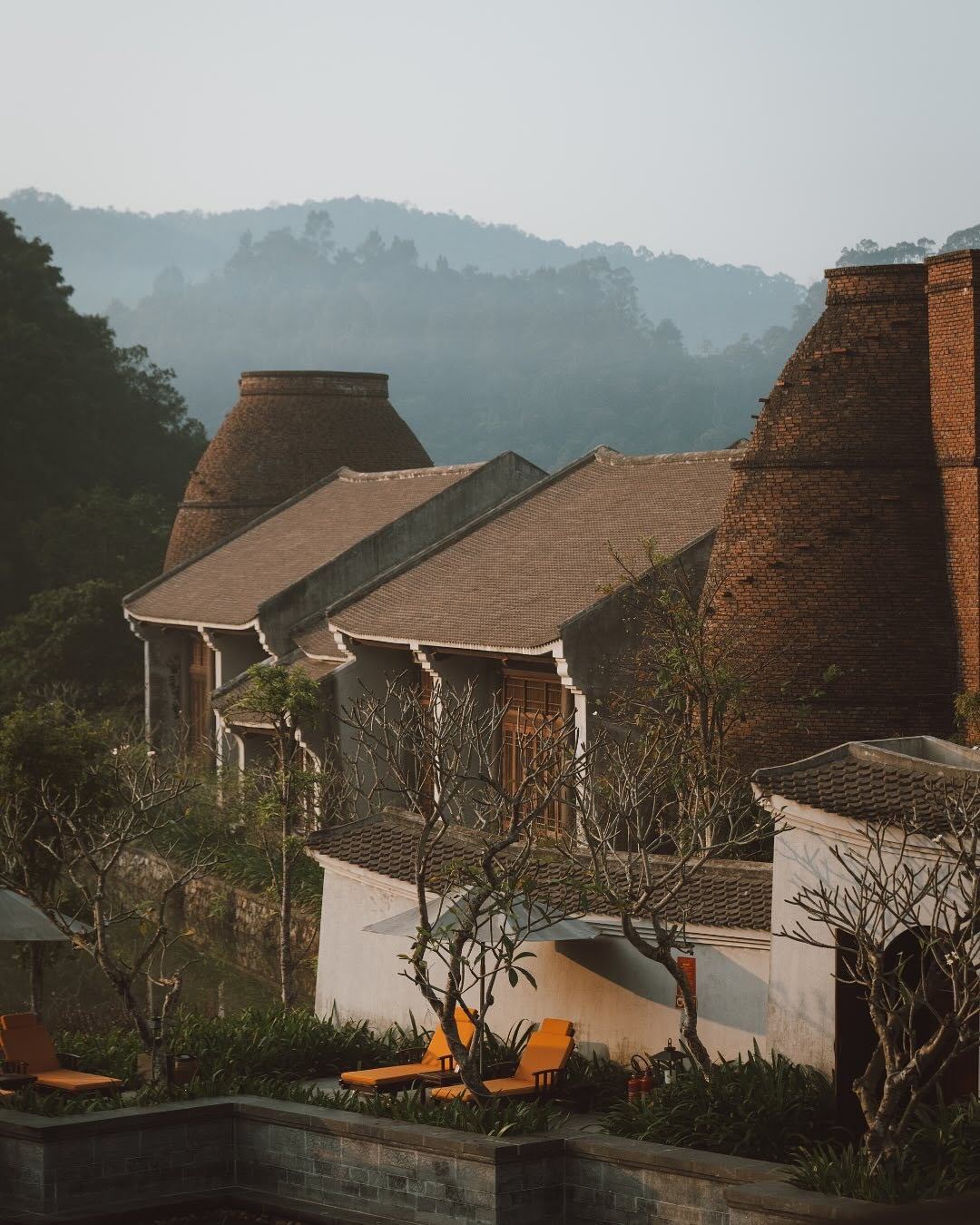
That period of reflection shaped the hotel’s DNA. Instead of imposing an external style, Bensley drew from 13th-century Vietnamese architecture. Terracotta tiles, stone courtyards, and sweeping wooden beams recall the Tran Dynasty era. The property feels less like a modern build and more like a natural extension of Yen Tu’s heritage.
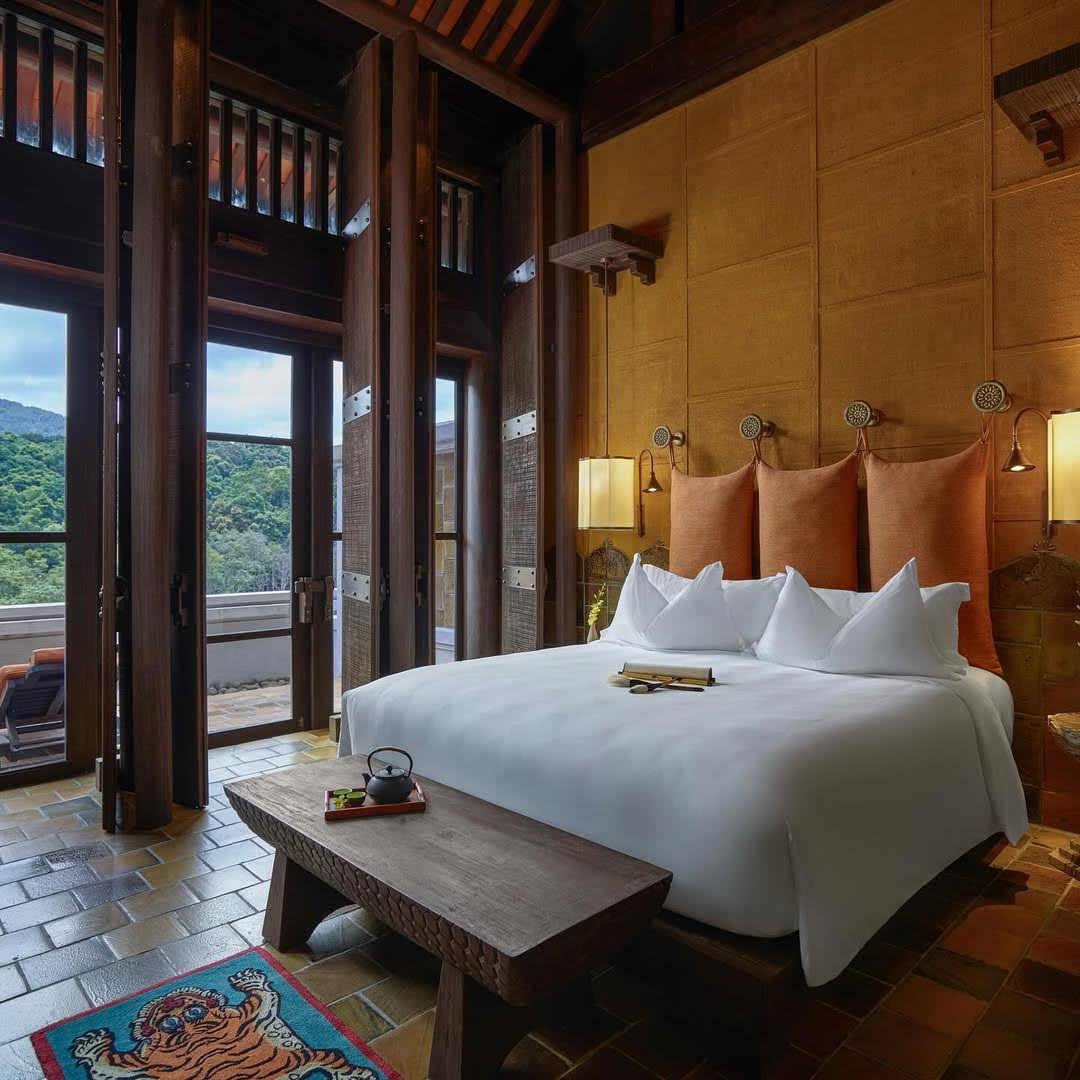
Inside, the sense of authenticity continues. Guest rooms feature dark wood, handcrafted furniture, ceramic water jars, and patterned screens inspired by traditional design. Every detail has a purpose. Balconies and terraces open to sweeping mountain views, reinforcing the connection between the hotel and its natural surroundings.
For a place rooted in spirituality, this respect for context is essential.
A Stay That Balances Comfort and Reflection
The MGallery Legacy Yen Tu manages to balance modern comfort with intentional simplicity. It isn’t a resort that dazzles with extravagance. Instead, it creates the kind of space where guests can slow down, breathe, and reflect.
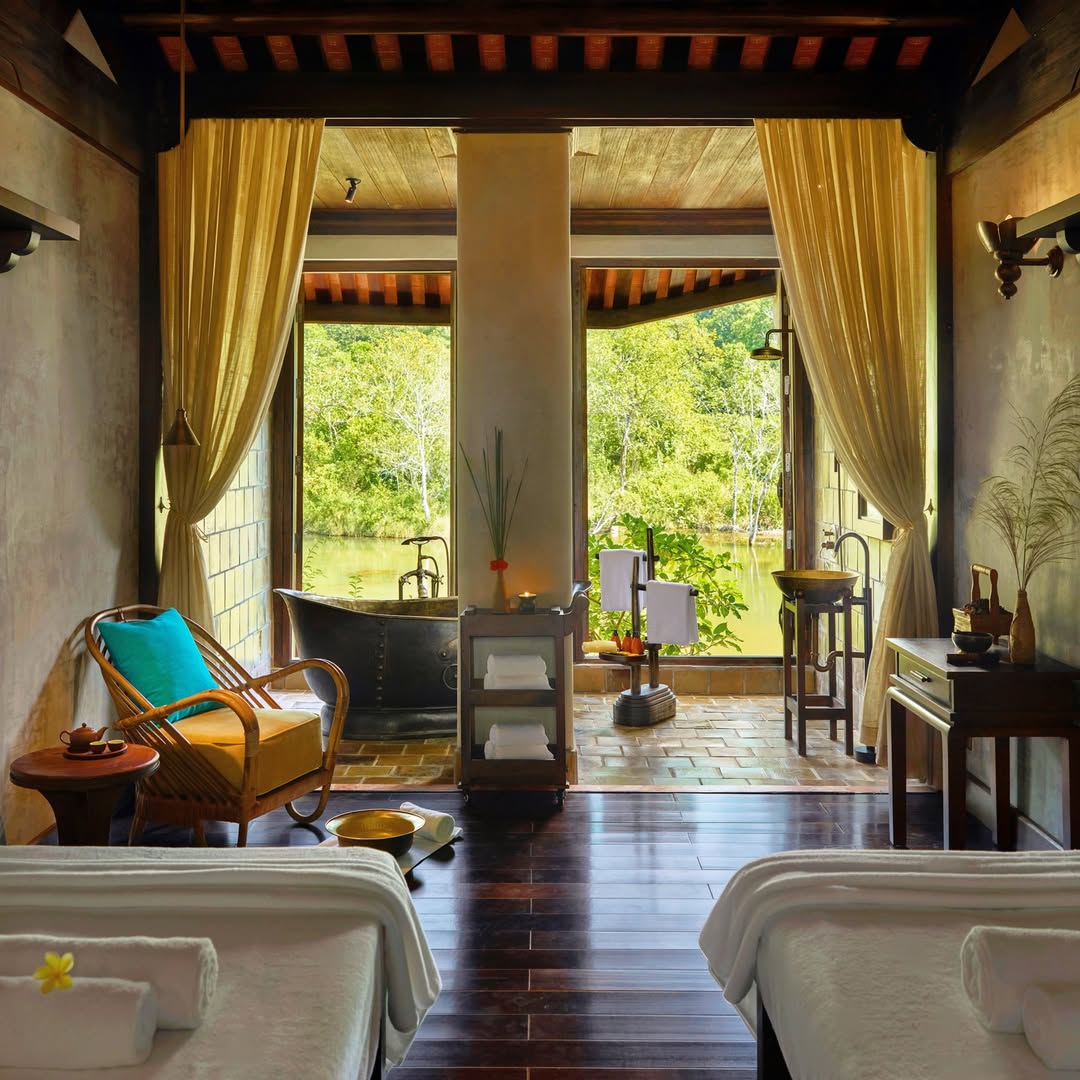
The rooms are spacious, but thoughtfully so. Natural light fills the space, earthy tones echo the landscape, and the overall design encourages calm. It feels less like a place to simply sleep and more like an environment designed to reset your state of mind.
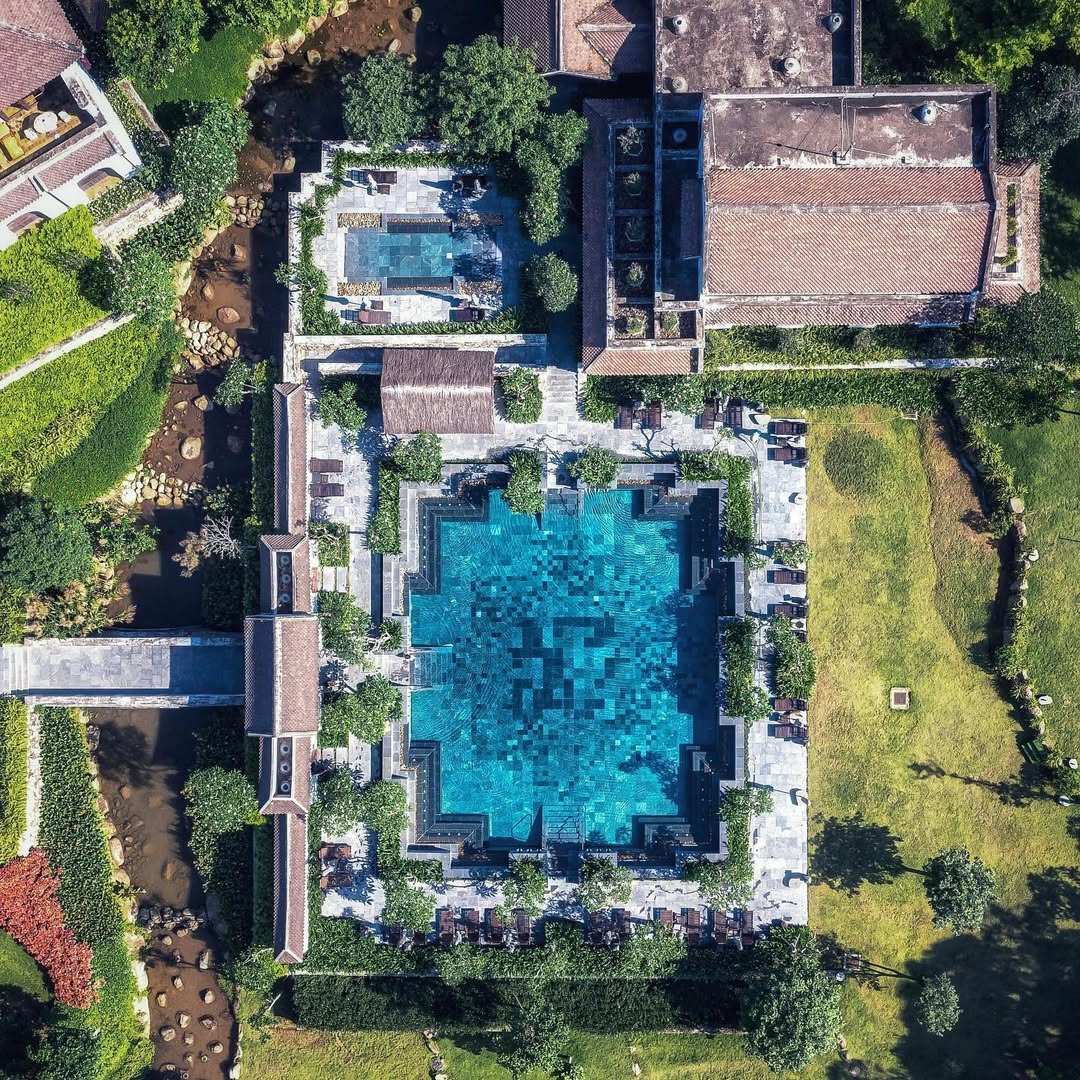
Wellness is another focal point. The Yen Tu spa incorporates traditional therapies and herbal treatments, while the infinity pool—framed by misty mountains—offers a sense of quiet immersion in nature. Even just sitting by the pool, watching the fog drift in and out of the valley, feels like a meditative experience.
The hotel also acts as a gateway to the wider Yen Tu complex. Guests can take the cable car or hike to historic temples, including Hoa Yen Pagoda halfway up the mountain and the Bronze Pagoda at the summit. Returning to the hotel afterward, there’s a natural rhythm between exploration and rest.
Dining at Legacy Yen Tu
Food at the Legacy Yen Tu continues the theme of grounding modern hospitality in tradition.
Breakfast offered a spread that combined the familiar with the local. Alongside international staples, there were regional specialties like sticky rice, herbal porridge, and fresh tropical fruits. It reflected the hotel’s dual audience: domestic travelers seeking comfort and international guests wanting a taste of Vietnam.
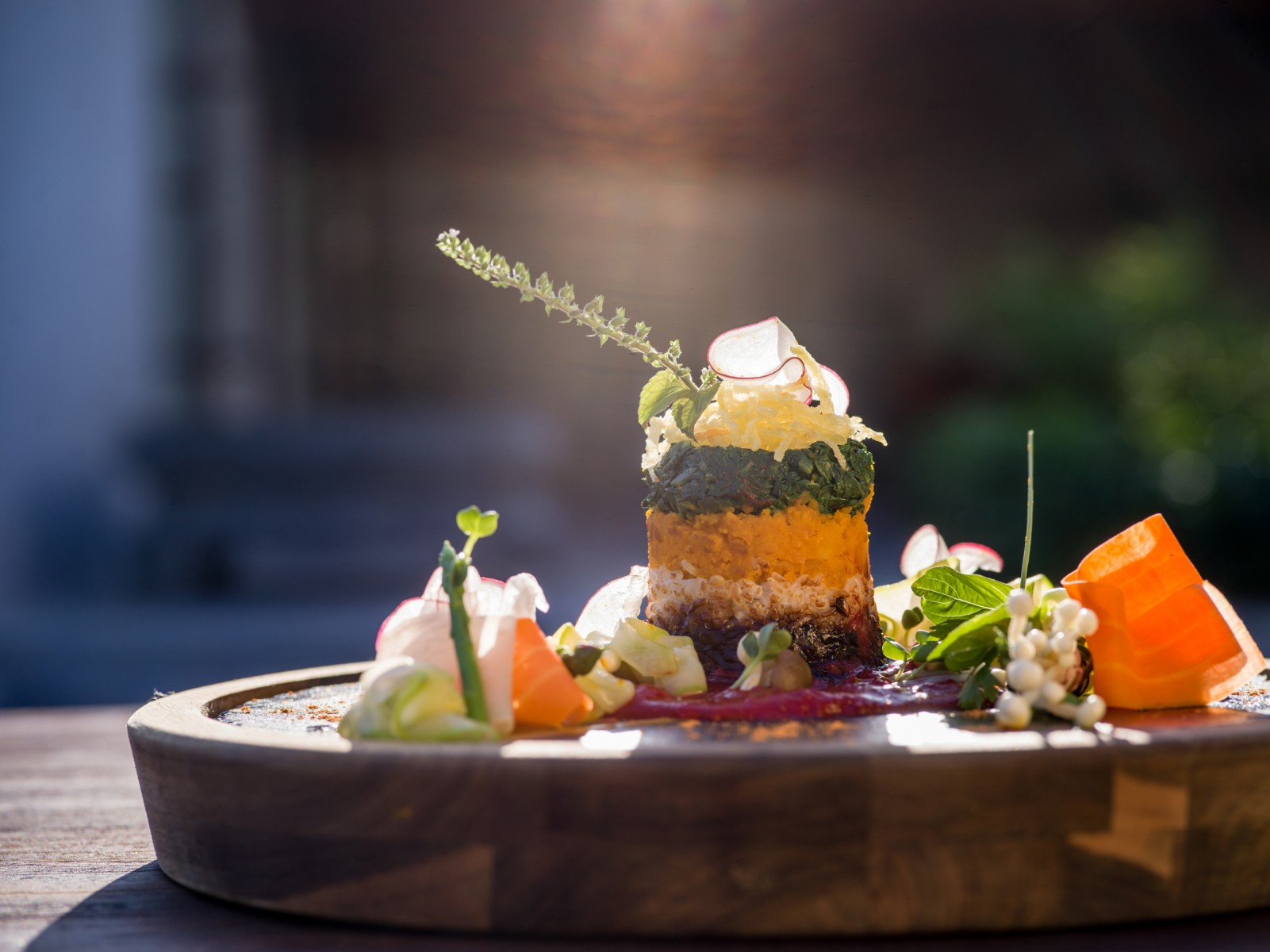
Dinner leaned heavily on northern Vietnamese flavors, highlighting seasonal produce and simple, nourishing recipes. Herbal broths, grilled meats, and mountain vegetables tied the dining experience to the region’s agricultural heritage.
The bar added a contemporary note, serving cocktails infused with local herbs and liqueurs. Sipping one while overlooking the mountains at dusk was a reminder of how the hotel blends indulgence with context—it never strays far from its setting.
Yen Tu as a Destination
Staying at the Legacy Yen Tu also highlighted how much potential the region has as a destination. Quang Ninh is already world-famous for Ha Long Bay, but Yen Tu offers something different: a blend of cultural history, natural beauty, and wellness experiences.
Infrastructure has been developed carefully. The cable car system makes the pilgrimage accessible to more visitors, while the preservation of historic temples keeps the spiritual core intact. Investments in properties like the MGallery demonstrate that Yen Tu isn’t just a day trip—it’s a place to stay for multiple days, to absorb and reflect.
As Vietnamese travelers look for weekend escapes and international visitors seek experiences beyond beaches and megacities, Yen Tu is positioned to grow as a distinctive tourism hub. The Legacy Yen Tu is central to that growth, offering an experience that feels both luxurious and grounded.
Why It Resonates
What makes the Legacy Yen Tu memorable is its coherence. Everything—from Bensley’s architectural choices to the spa treatments, dining, and even the pacing of the stay—ties back to the theme of heritage and reflection.
Unlike resorts that add a layer of generic luxury onto their setting, this hotel feels like it belongs to the mountain. You’re not just staying at a property; you’re engaging with a story. Waking up to temple bells in the distance, walking ancient trails by day, and returning to a poolside view of mist rolling over the mountains—these are experiences that linger.
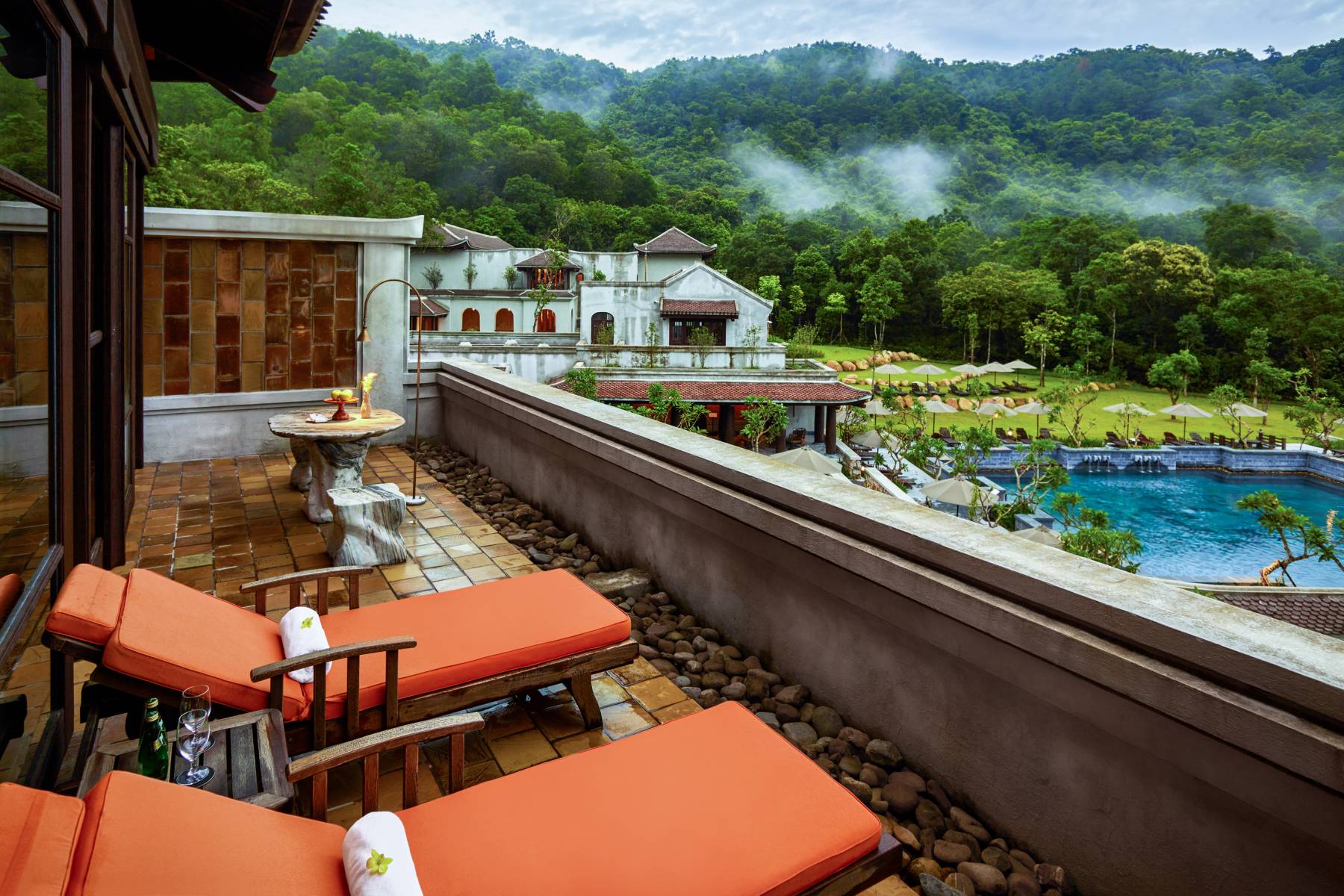
For me, it was more than a weekend retreat. It was a reminder of how Vietnam’s tourism is diversifying, offering not just destinations but narratives. The MGallery Legacy Yen Tu is one of those rare places where history, design, and hospitality align seamlessly.
Final Thoughts
As Vietnam expands its tourism footprint, destinations like Yen Tu signal a new direction: travel that is immersive, authentic, and rooted in heritage. The MGallery Legacy Yen Tu embodies that shift. It’s a hotel that doesn’t just provide luxury—it provides context, meaning, and a sense of connection.
For Vietnamese travelers seeking reflection, or international visitors wanting to engage with Vietnam beyond the familiar icons of Ha Long Bay or Hoi An, Yen Tu offers something distinctive. My stay at the Legacy Yen Tu wasn’t just restful—it was grounding. And that’s exactly the kind of experience more travelers are looking for today.
